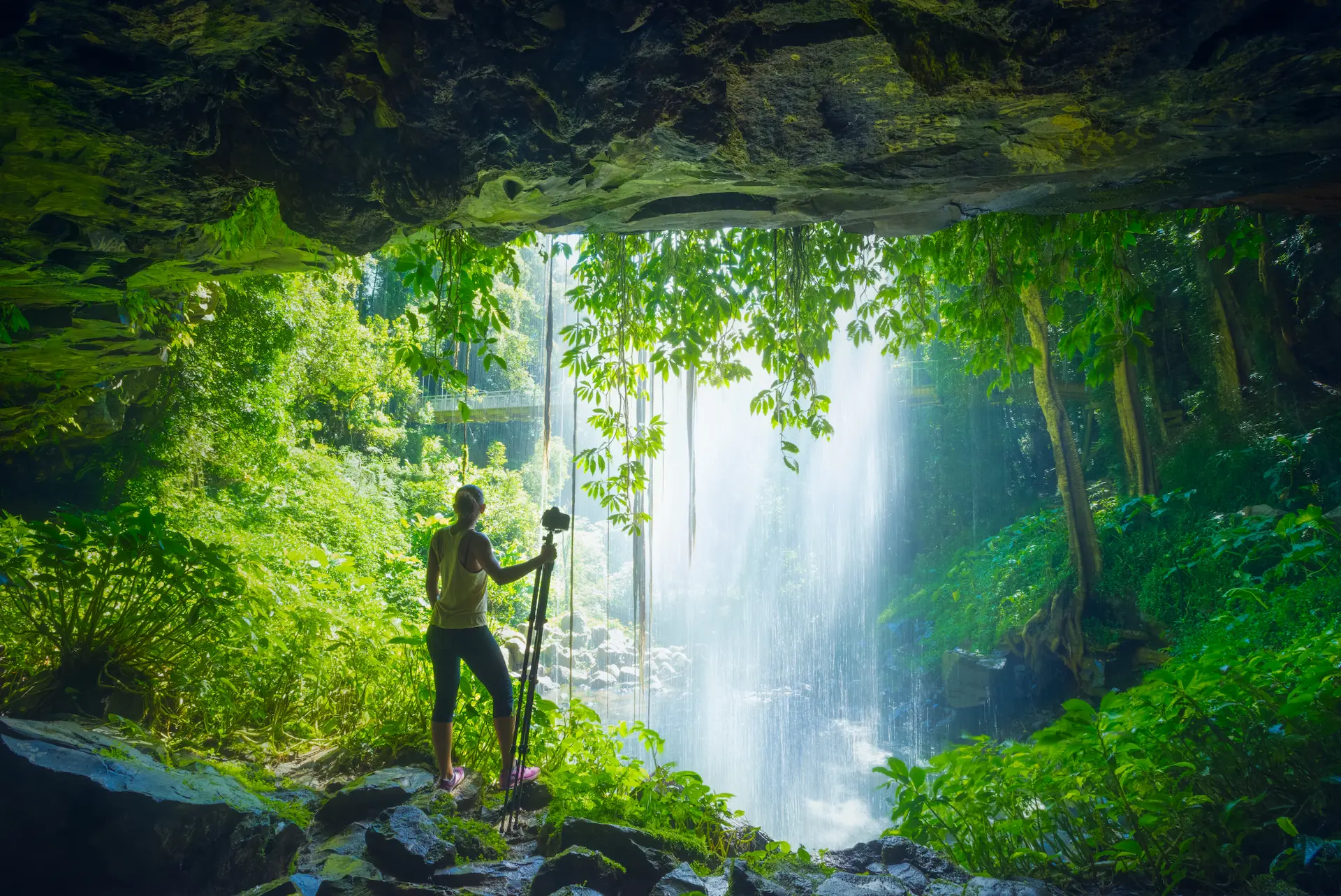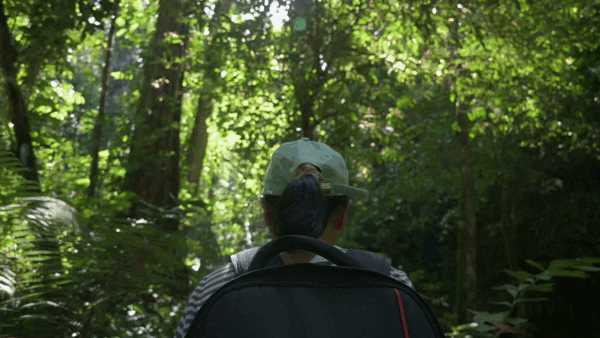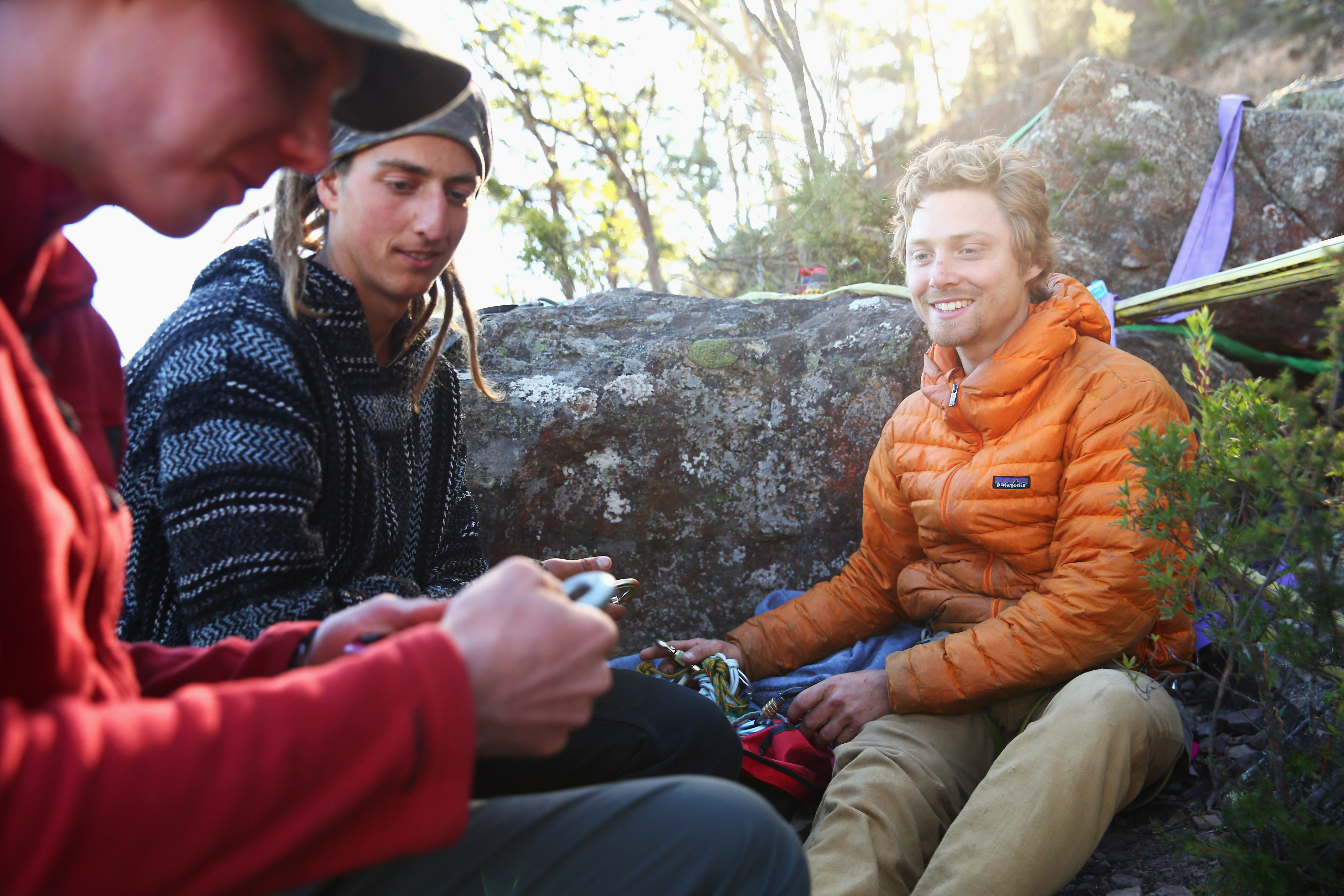
Education
Are the kids OK?

The early results of a new trial on ‘nature prescribing’ show promise for helping young people with mild mental illness
Published 11 June 2024
In the UK, the country’s National Health Service (NHS) now has nature on prescription. Known as ‘green social prescribing’, it aims to support people to engage in nature-based interventions and activities to improve their mental and physical health.
In practice, this means spending time with other people in nature.

Globally, there is growing evidence of the value of nature for improving personal health and wellbeing.
Currently, however, there isn’t a whole lot of research that gives us strong evidence of the effectiveness of these kinds of programs – but that’s exactly what we’re working to find out.
The recent Household, Incomes and Labour Dynamics in Australia (HILDA) survey found Australia's young people are becoming lonelier and experiencing more psychological distress – with some describing it as a “mental health crisis”.
Here in Victoria, the not-for-profit People and Parks Foundation is trialling a non-clinical approach called ‘Nature Scripts’, which uses nature as an alternative or addition to more conventional medical treatments.

Education
Are the kids OK?
Headspace Shepparton, a branch of a national mental health service provider, is currently providing Nature Scripts for young people with mild mental illness to take part in nature activities in groups of five to seven people.
These are weekly two-hour curated nature-based activities over six weeks, building nature awareness and knowledge. These socially supportive groups might involve nature journaling, yoga, tree planting, going for bushwalks with a Parks Victoria ranger, identifying macroinvertebrates with Landcare, or learning nature photography.
At the moment, there’s only modest evidence that social prescribing – which connects people to community services or groups – is effective.
Nature prescribing, as a new approach, has even less evidence.
So, an important part of the Nature Scripts program is to evaluate its
effectiveness in improving the health and wellbeing of participants engaging in social prescribing in nature.

We are working with People and Parks Foundation and Headspace to help evaluate the effectiveness of the Shepparton trial.
The aim of Nature Scripts is to improve the outcomes for these young people. So, we’ve measured these outcomes against a number of widely used wellbeing and mental health indicators – often called ‘scales’ or ‘indexes’. These measurements are being recorded beforehand, immediately afterwards and six-months later to explore the longevity of any impacts.
Our early findings for 25 participants who have been through the program (but haven’t yet done their six-month review) show us just how encouraged we should be by the results of the Nature Scripts trial.
This group has shown:
A significant reduction in loneliness (which we measured using the UCLA Loneliness Scale)
A significant increase in subjective wellbeing (using the Personal Wellbeing Index)
A significant increase in wellbeing (measured by the Flourishing Scale)
A significant reduction in psychological distress (according to the Psychological Distress Scale).

Business & Economics
Australia’s young people are getting lonelier
We’re also doing qualitative measurements as part of the evaluation. These are gathered through interviews to better understand participant experiences from the program, including their assessment of its value and ways it might be improved.
So far, six participants have told us that both the nature-based activities and group-based delivery mode were important contributors to their positive outcomes.
But it’s worth looking in more detail at the findings on improvement in subjective wellbeing.
Using the Personal Wellbeing Index (PWI), the mean Australian score for subjective wellbeing is usually 7.0 to 7.5. Earlier research has found that a PWI score of more than about six is important for a person to feel socially included.
The results of the 25 participants we’ve analysed showed a mean PWI starting score of a low 5.5, which increased to 6.5 post-intervention, and our qualitative research suggests an overall feeling of increased social inclusion.

If our six-month follow-up shows that these benefits have continued, then this could tell us that small group-based nature interventions for young adults with mild mental illness would be worth pursuing more broadly.
People and Parks Foundation is keen to build on the learning and achievements of the Nature Scripts pilot in Shepparton. The Foundation is seeking partners to both expand this youth mental health intervention nationally and extend it to other groups of people and other health conditions.
If the benefits of Nature Scripts do continue, then it would help to reinforce the importance of protecting Australia’s unique environment. There are already studies showing that experiencing biodiversity in nature has greater mental health benefits than just green open spaces, like parks.

Health & Medicine
Our mental health has gone digital
Our ability to access natural environments is also important here – findings suggest a reciprocal relationship between natural environments and ‘bumping places’ (like libraries and community centres), as both are important for developing social connections, wellbeing and inclusion.
What we do know from our early result is that Nature Scripts has helped at least 25 young people. And there’s real potential that it could help many more.
If you’d like more information about the program, you can find it on the People and Parks Foundation website.